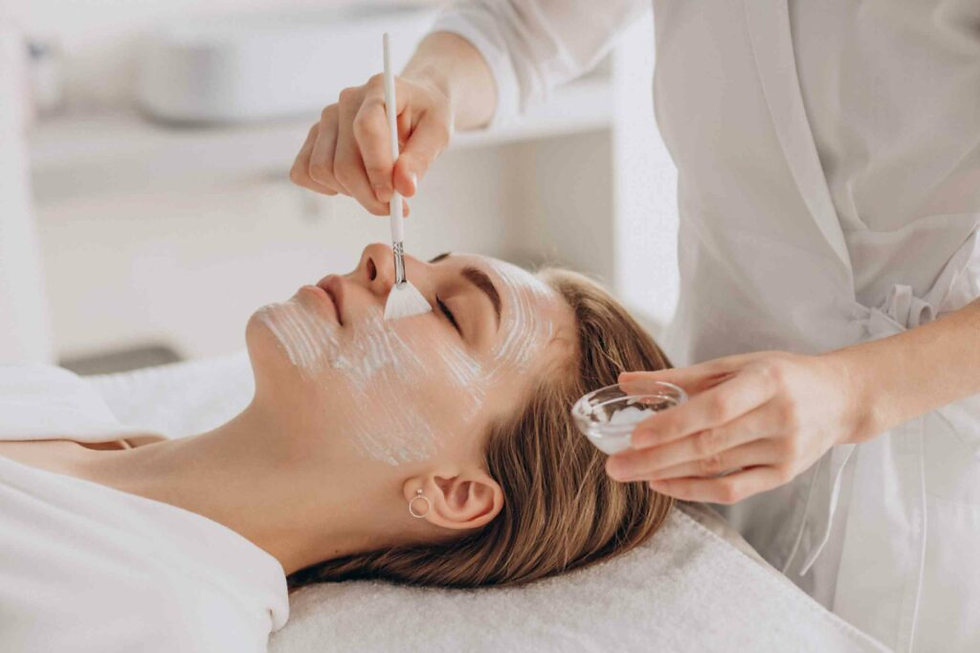Exceptional Pediatric Dentistry for Your Child's Care
- Bisma Jamal
- Aug 12, 2024
- 4 min read
When it comes to ensuring the health and well-being of your child's teeth, exceptional Pediatric Dentistry in Dubai plays a pivotal role. Unlike general dentistry, pediatric dentistry focuses specifically on the oral health needs of children from infancy through adolescence. This specialized field requires a unique approach tailored to the developmental stages of young patients, ensuring that their dental care is both effective and gentle.
Understanding Pediatric Dentistry
Pediatric dentistry is a branch of dentistry that emphasizes the comprehensive care of children's oral health. It involves not only treating existing dental issues but also preventing potential problems through education and proactive measures. Pediatric dentists are trained to manage the various aspects of children's dental care, from routine check-ups to complex procedures, with a deep understanding of the psychological and developmental needs of young patients.
The Importance of Early Dental Visits
One of the fundamental principles of pediatric dentistry is the importance of early dental visits. The American Academy of Pediatric Dentistry recommends that children visit a pediatric dentist by their first birthday or within six months after their first tooth erupts. Early visits help establish a dental home, where children become accustomed to the dental environment and build trust with their dentist. These visits allow for the monitoring of dental development and the early detection of potential issues such as cavities, misalignment, or developmental anomalies.
Preventive Care: A Cornerstone of Pediatric Dentistry
Preventive care is a cornerstone of pediatric dentistry. Pediatric dentists focus on helping children develop good oral hygiene habits that will last a lifetime. This includes teaching proper brushing and flossing techniques, offering dietary advice to promote healthy teeth, and providing fluoride treatments to strengthen enamel. Regular cleanings and check-ups are essential to remove plaque and tartar buildup, which can lead to cavities and gum disease if left untreated.
Addressing Common Pediatric Dental Issues
Children can encounter various dental issues that require specialized attention. Some common concerns include:
Cavities and Tooth Decay: Children are particularly susceptible to cavities due to their diets and the fact that their enamel is still developing. Pediatric dentists use techniques such as dental sealants to protect the chewing surfaces of molars and monitor the condition of existing fillings to prevent further decay.
Orthodontic Concerns: As children grow, they may develop alignment issues that require orthodontic intervention. Pediatric dentists often work closely with orthodontists to evaluate and manage issues such as crowded teeth, overbites, and underbites. Early assessment can lead to more effective and less invasive treatments.
Thumb Sucking and Pacifier Use: These common habits can impact dental development if they persist beyond the age of three. Pediatric dentists can offer guidance on how to gently wean children from these habits and address any resulting dental issues.
Trauma and Injury: Children are prone to accidents that can result in dental trauma, such as chipped or knocked-out teeth. Pediatric dentists are equipped to handle these emergencies, providing immediate care and long-term solutions to restore dental function and appearance.
Creating a Positive Dental Experience
One of the most critical aspects of pediatric dentistry is creating a positive and comfortable experience for children. Pediatric dentists are skilled in making dental visits less intimidating and more enjoyable. They often use child-friendly language, engage in playful interactions, and create a welcoming environment that reduces anxiety. This approach helps children build a positive attitude towards dental care, which can lead to better oral health habits as they grow.
Parental Involvement in Dental Care
Parents play a crucial role in their child's dental health. Pediatric dentists work closely with parents to provide guidance on maintaining oral hygiene at home, managing dietary habits, and recognizing signs of dental problems. Effective communication between the dentist, child, and parent ensures that everyone is informed and involved in the child's dental care.
Advances in Pediatric Dentistry
Pediatric dentistry is continually evolving, with advancements in technology and techniques enhancing the care provided to young patients. Modern diagnostic tools such as digital X-rays and intraoral cameras allow for more accurate assessments and less invasive procedures. Additionally, advancements in materials and techniques have improved the comfort and effectiveness of dental treatments for children.
The Role of Pediatric Dentists in Overall Health
The impact of pediatric dentistry extends beyond oral health. Poor dental health can affect a child's overall well-being, including their ability to eat, speak, and socialize comfortably. Pediatric dentists play a crucial role in addressing these issues, contributing to the child's overall quality of life. By promoting good oral health, pediatric dentists help prevent complications that can arise from untreated dental problems, such as infections or developmental delays.
Choosing the Right Pediatric Dentist
Selecting the right pediatric dentist is an important decision for ensuring your child's dental health. Look for a dentist who is not only qualified and experienced but also creates a friendly and supportive environment for children. A good pediatric dentist should be able to communicate effectively with both children and parents, providing clear explanations of procedures and answering any questions or concerns.
Conclusion
Exceptional pediatric dentistry is fundamental to ensuring that your child's oral health is well cared for from an early age. By focusing on preventive care, addressing common dental issues, and creating a positive dental experience, pediatric dentists help set the foundation for a lifetime of healthy smiles. With the right care and guidance, children can develop strong oral hygiene habits and a positive attitude towards dental visits, leading to better overall health and well-being.




Comments